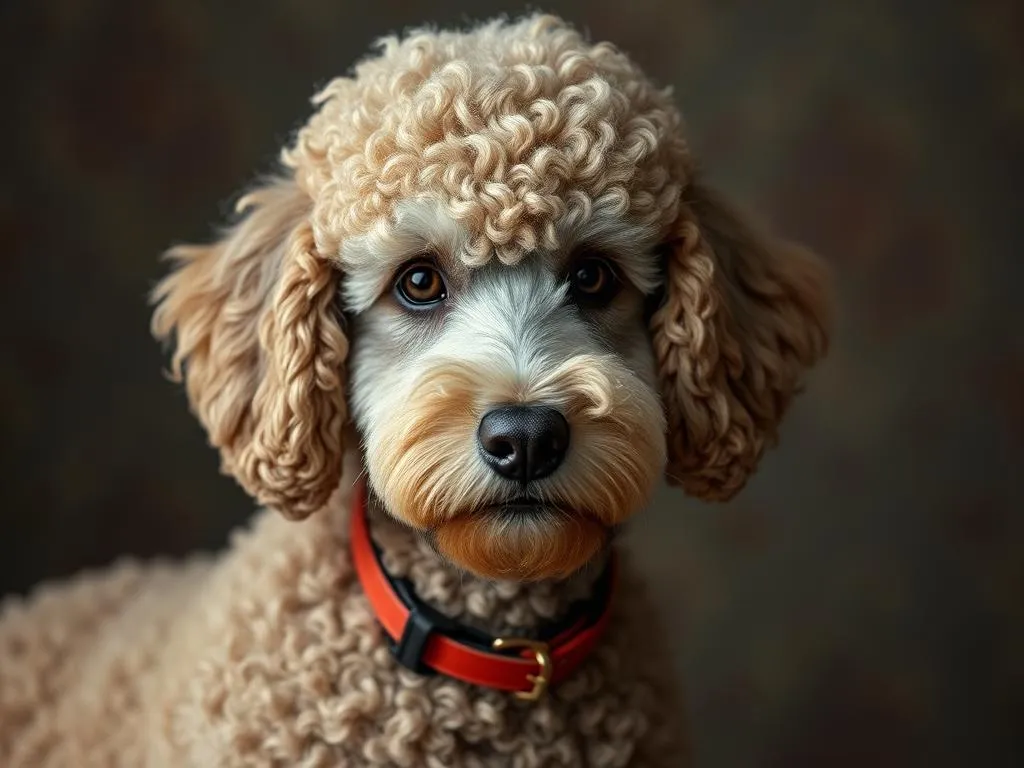
Understanding dog breeds is essential for anyone considering adding a furry friend to their family. Each breed has unique characteristics, histories, and care requirements that can significantly affect a dog owner’s experience. Among the many breeds, the Klein Poodle stands out as a captivating and versatile option. This article delves into the history, physical characteristics, temperament, health considerations, grooming needs, and lifestyle compatibility of the Klein Poodle, providing potential owners with valuable insights.
History of the Klein Poodle
Origin of the Poodle Breed
The Poodle breed traces its roots back to Germany, where it was originally bred as a water retriever. The name “Poodle” comes from the German word “Pudel,” meaning “to splash in water.” Over time, Poodles became popular in France, where they were refined and bred into three distinct sizes: Standard, Miniature, and Klein. The Klein Poodle, which translates to “small poodle” in German, occupies a unique position as a medium-sized variant.
Development of the Klein Poodle
The Klein Poodle was developed to cater to those who desire a Poodle that is more compact than the Standard but larger than the Miniature. This breed was established through selective breeding practices aimed at maintaining the Poodle’s intelligence, hypoallergenic coat, and friendly personality. The Klein Poodle gained popularity in Europe and has since found its way into homes worldwide, appreciated for its charm and adaptability.
Physical Characteristics of the Klein Poodle
Size and Weight
The Klein Poodle typically weighs between 15 to 25 pounds and stands about 12 to 15 inches tall at the shoulder. This size makes them an ideal companion for families and individuals alike, striking a balance between portability and presence.
Coat Type and Colors
One of the Klein Poodle’s most notable features is its curly coat, which is not only beautiful but also hypoallergenic. The coat requires regular grooming to prevent matting. Color variations include black, white, apricot, and gray, among others. Each Klein Poodle can exhibit a unique blend of colors and patterns, adding to its individuality.
Distinctive Features
Klein Poodles have a well-proportioned body, with a refined head and expressive eyes that exhibit intelligence and curiosity. Their ears are long and hang close to the cheeks, framing their face beautifully. This breed’s distinctive coat and elegant stature make it one of the most recognizable among dog breeds.
Temperament and Personality
General Temperament
The Klein Poodle is known for its friendly and affectionate nature. They are eager to please and form strong bonds with their families, making them excellent companions. Their playful spirit often brings joy to households, as they thrive on interaction and attention.
Social Behavior
Klein Poodles are typically sociable and get along well with children and other pets. Their gentle demeanor makes them suitable for families, while their playful nature ensures they engage well with energetic kids. Early socialization is crucial to help them develop into well-rounded adults.
Trainability
Recognized for their intelligence, Klein Poodles excel in training. They are quick learners and respond well to positive reinforcement techniques. This breed is eager to please, making them a favorite among those who enjoy teaching their dogs new tricks and commands.
Exercise Needs
Despite their small to medium size, Klein Poodles require regular exercise to stay healthy and happy. Daily walks, play sessions, and mental stimulation through puzzle toys or training exercises are essential. A well-exercised Klein Poodle will be a content and well-behaved companion.
Health Considerations
Common Health Issues
Like all breeds, Klein Poodles are predisposed to certain health conditions. Common issues include hip dysplasia, eye disorders, and skin problems. Regular veterinary check-ups can help detect and address these concerns early.
Preventive Healthcare
Routine vet visits are crucial for maintaining the health of your Klein Poodle. Vaccinations, flea and tick prevention, and dental care should be part of their healthcare regimen. Early detection of any health issues can lead to successful treatment and a longer, healthier life.
Diet and Nutrition
To ensure optimal health, a balanced diet tailored to the Klein Poodle’s age, size, and activity level is essential. High-quality dog food, either commercial or home-cooked under veterinary guidance, can provide the necessary nutrients. Portion control and monitoring their weight can prevent obesity, which is a common issue in smaller breeds.
Grooming Requirements
Coat Care
The Klein Poodle’s curly coat requires regular grooming to prevent tangles and mats. Brushing at least two to three times a week is recommended, with professional grooming every six to eight weeks. Regular grooming not only keeps their coat healthy but also strengthens the bond between the dog and owner.
Bathing and Cleaning
Bathing should be done as needed, typically every four to six weeks or when the dog gets particularly dirty. Gentle dog shampoos that won’t irritate their skin are preferable. Additionally, regular ear cleaning is vital, as Klein Poodles are prone to ear infections due to their floppy ears.
Nail Trimming and Dental Care
Regular nail trimming is essential to prevent overgrowth, which can lead to discomfort and difficulty walking. Owners should aim to trim their Klein Poodle’s nails every few weeks. Dental hygiene is equally important; brushing their teeth several times a week can prevent dental diseases.
Living with a Klein Poodle
Ideal Living Environment
Klein Poodles are adaptable and can thrive in various living situations. They do well in both apartments and houses, provided they receive adequate exercise and mental stimulation. A secure yard can enhance their outdoor experience, but they can also enjoy urban living as long as regular walks are part of their routine.
Compatibility with Families
The Klein Poodle’s friendly and social nature makes it a great fit for families with children. They are patient and tolerant, which is essential in a household with kids. Additionally, their compatibility with other pets can lead to harmonious multi-pet households.
Lifestyle Considerations
Before bringing a Klein Poodle into your home, consider your lifestyle and activity level. They thrive on companionship and engagement, making them ideal for active individuals or families who can dedicate time to play and training. Those with a busy schedule may find it beneficial to consider the time commitment involved in owning this breed.
Training Tips for Klein Poodles
Basic Commands
Teaching your Klein Poodle basic commands like sit, stay, and come is essential for a well-mannered pet. These commands not only enhance safety but also strengthen the bond between the dog and owner. Early training can lead to a well-behaved adult dog.
Positive Reinforcement Techniques
Using positive reinforcement techniques, such as treats and praise, can significantly enhance the training experience. Klein Poodles respond well to encouragement, making it easier to teach them new skills and commands. Consistency is key; regular training sessions will yield the best results.
Socialization Strategies
Early socialization is crucial for Klein Poodles to develop into well-adjusted adults. Introduce them to various environments, people, and other animals during their puppy stages. Puppy classes can be a great way to socialize while also receiving professional guidance on training techniques.
Conclusion
The Klein Poodle is an affectionate, intelligent, and versatile breed that can fit well into various lifestyles. Its unique combination of charm and adaptability makes it a wonderful companion for families and individuals alike. With proper care, training, and socialization, a Klein Poodle can bring joy and companionship for many years.
For those considering adding a Klein Poodle to their family, be prepared for a loving relationship filled with fun, learning, and companionship. They are not just pets; they become cherished family members who enrich our lives with their playful spirit and loyal nature.









